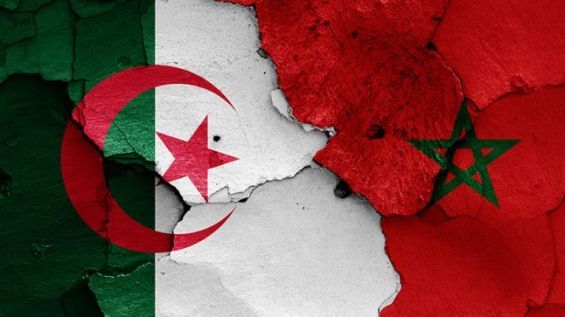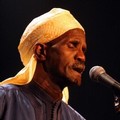Since 2021, Morocco and Algeria have been at the heart of a diplomatic crisis. The latter is seen as a ticking bomb that, if not restrained by foreign actors, could lead to a cross-border war.
In a report published on November 29th, titled «Managing Tensions between Algeria and Morocco», the International Crisis Group, an independent organization committed to preventing and resolving deadly conflicts, analyzes the current situation between Rabat and Algiers, highlighting the risks and efforts to prevent escalation.
Three years ago, Algeria decided to sever diplomatic ties with the Kingdom of Morocco. The straw that broke the camel’s back was, according to Algeria, Rabat’s decision to normalize ties and pursue military cooperation with Israel in 2020. «Algeria saw Israel’s increasingly close ties with Morocco as a threat to its national security», the report explains. This step is considered one of the main reasons behind Algeria’s decision to cut ties with Morocco.
American pressure
Resuming ties with Israel, in addition to other sources of friction between the neighboring countries, such as the Western Sahara issue, could have led to armed escalation, the report notes. However, «mutual self-restraint and U.S. diplomacy» have so far prevented this scenario.
The report’s findings suggest that external actors, such as the Biden administration, have played a major role in easing tensions between Algeria and Morocco. «From Washington, the Biden administration tried to prevent a direct conflict by deepening its engagement with all three parties at the core of the crisis – Algeria, Morocco, and the Polisario», it states.
European governments, on the other hand, have «struggled with their diplomacy, caught in the middle of the zero-sum game between Algiers and Rabat». While Spain and France have tried to balance their relationships with both nations, they have aligned more closely with Morocco, supporting Rabat’s sovereignty over the Sahara and asserting that a solution to the long-standing conflict lies within Morocco’s autonomy plan.
Meanwhile, the European Union has sought to «shield its relationship with Morocco from the repercussions of a long-running legal battle over Western Sahara at the European Court of Justice», striving (with mixed success) to balance this effort with outreach to Algeria.
Risk factors undermining the status quo
However, escalation from both sides could undermine this fragile status quo. The authors of the report identify a series of risk factors that, without the intervention of foreign actors, could lead to military confrontation in the region.
One major risk is the surge of militancy among Polisario youth. «Young Sahrawi activists, increasingly dissatisfied with the Polisario’s attrition war strategy, are calling for a sharp escalation», the report warns. This pressure is expected to persist as younger mid-level officials rise through the ranks and gain influence in decision-making.
Another risk is the arms race between Algeria and Morocco, which engenders «heightened threat perceptions». While the Algerian army remains «superior» to Morocco’s, the latter has been acquiring advanced equipment from the U.S. and Israel that could tilt the balance of power in its favor in a hypothetical war, the report suggests.
A third risk factor involves the United States, which has played a key role in maintaining peace in the region. The report notes that the change in the U.S. administration could destabilize this balance. According to Crisis Group, the re-election of Donald Trump could heighten the risk of war. Trump’s previous administration, the report claims, «fanned regional tensions – and arguably heightened Algeria’s threat perception – by recognizing Moroccan sovereignty over Western Sahara and supporting Morocco’s normalization of diplomatic relations with Israel».
The Biden administration has managed to cool tempers by re-engaging with all parties, but a second Trump term could «play a disruptive role», though the report admits that any specific plans for North Africa under such an administration remain unclear.
Online disinformation and hate speech in both Algeria and Morocco are also significant risk factors. «Propagating dangerous narratives among the populace can seep into government at various levels», the report suggests.
What should be done to avoid a cross-border war
While highlighting these risks, the report also proposes solutions to maintain the status quo and potentially restore ties between the two nations. For this, the authors emphasize the need for outside assistance. «Equilibrium in North Africa should be a priority for the two countries’ outside partners, though longstanding Western partners may be most open to pressing in this direction», the report states.
The U.S. and European states should intervene to minimize the risk of direct military confrontation by stressing, in both private and public messaging, «the overriding need to protect civilians in Western Sahara and safeguard MINURSO’s operations».
To address the arms race, the report recommends that external actors ensure that their military equipment sales «do not unduly alter the balance of power». This includes the U.S. pressing Israel and Turkey to slow the pace of their arms sales to Rabat and Algiers, respectively, while Gulf countries, such as Saudi Arabia, should urge Moscow to calibrate its weapon sales to Algeria to avoid escalation.
Meanwhile, European countries should aim for a more «balanced role», conveying calming messages to both Morocco and Algeria and intervening when incidents threaten to escalate, the report adds.
Regarding online disinformation, the report calls on social media giants like Facebook, Instagram, and X to «intensify scrutiny of suspicious posts concerning these countries and stand ready to intervene if harassment, disinformation, and hate speech tick up».
Additionally, the U.S. and European nations should help relaunch UN-sponsored talks on Western Sahara. European governments should «push Morocco and the Front to accept a resumption of talks and pave the way for de Mistura (The UN Personal Envoy to the Sahara) to present a workable plan for dialogue».
If these recommendations are implemented, the way could be paved for the resumption of ties between Algeria and Morocco. The report envisions a future where relations are restored, borders reopened, and cooperation initiatives resumed.





 chargement...
chargement...













